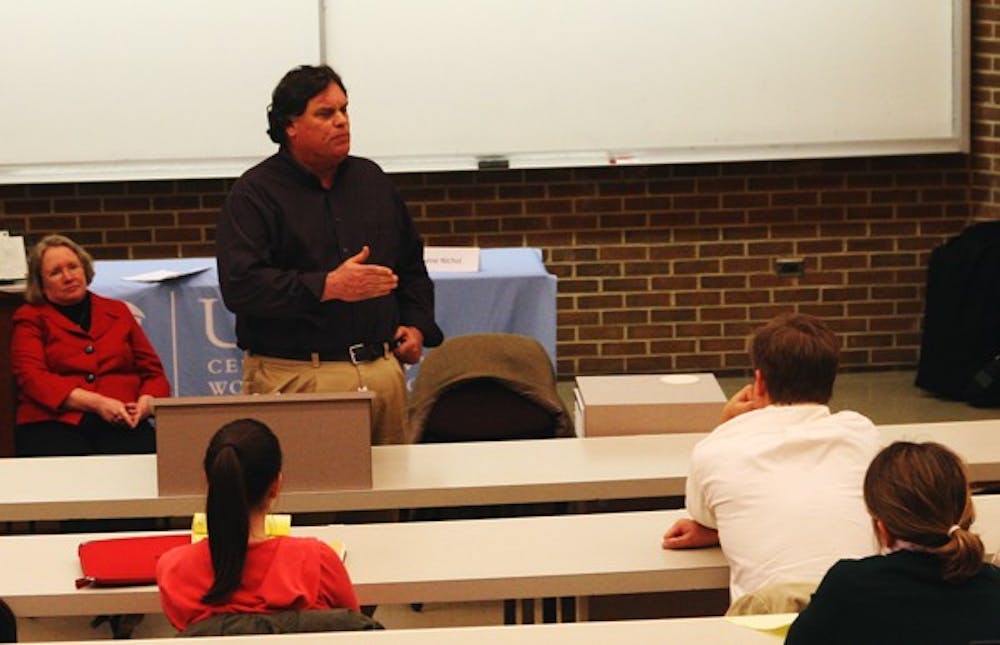A controversial court decision brought discussion of Constitutional amendments, corporate speech and fast-food advertisements to campus Tuesday afternoon.
About 50 students, faculty and residents attended a talk at the UNC School of Law to discuss the recent U.S. Supreme Court decision allowing corporations to spend money to attack or endorse candidates in local, state and federal elections.
Brenda Wright, director of Demos, a public policy organization, led the discussion. She never explicitly stated that she is against the court’s ruling, but she criticized it strongly.
She spoke about the impact the court’s decision could have on the American political landscape, especially regarding elections.
In Citizens United v. Federal Election Commission, the court ruled 5-4 that corporations have a First Amendment right to spend as much money from their corporate treasuries as they wish to endorse candidates.
Prior to the decision, corporations could form political action committees, private groups organized to raise money from individuals to endorse or attack candidates.
Now corporations are allowed to make expenditures from their general treasury funds for media advertisements and other forms of communication that advocate the election or defeat of candidates.
Companies can run an ad on behalf of a candidate, but money cannot be directly given to a particular campaign.
“It’s very hard to see this decision as anything other than a really serious threat to the principle that government is supposed to be responsible to the people it serves,” Wright said.
The change could give corporations more political pull, as they have the opportunity to use an unlimited amount of money to potentially affect a candidate’s campaign.
Regulations regarding disclosure of money that is spent will remain, but they vary from state to state.
When discussing disclosure, Wright envisioned a McDonald’s sign.
“Over 6 billion sold, and over 435,000 Congress persons bought,” she said.
The case could encourage lawmakers to move to change the Constitution, she said.
One attendee asked what to take back to colleagues in business, who might plan to become future corporate executives.
“Talk about the term self-restraint,” Wright said.
“Think about the common good. I think we’re in a moment where the fear of big corporation is taking over a lot more strongly and the fear of big government is kind of fading.”
Gene Nichol, UNC law professor and director of the UNC Center on Poverty, Work and Opportunity, also spoke, detailing the less-than-ideal state of campaign finance law.
First-year law student Lace Wayman said she thought the discussion sent a strong message.
“It was very powerful being able to see all of the effects that this is going to have on the larger community,” she said.
Contact the University Editor at udesk@unc.edu.
Speakers discuss effects of Supreme Court ruling

Gene Nichol, the director of the UNC Center on Poverty, Work and Opportunity. DTH Melissa Abbey


